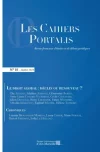This paper uses the theoretical framework based on the political notions of recognition and misrecognition in order to analyze the reception of Muslim talaq divorces in French courts. It provides a critical examination of the Cour de cassation’s decision in which the Court ruled that the foreign decision acknowledging talaq divorce is contrary to public policy, and more specifically to the gender equality principle. The paper argues that PIL practices constitute instances of political misrecognition since they fail to account for complex hybrid identities. It claims that political misrecognition is illustrated by the incorporation within law of essentialized, that is narrow and demeaning representations of Muslim legal culture and Muslim women’s identities, and by the enforcement of ethnocentric methodology, which denotes the application of domestic family law choices in the transnational realm.
Accueil >
Political Recognition and Transnational Law : Gender Equality and Cultural Diversification in French Courts

Publications récentes
-

La Chine se sert des grands forums sur le climat pour faire des affaires…
Isabelle Feng vient de publier l’article «La Chine se sert des grands forums sur le climat pour faire des affaires… -

Les méthodes d’enseignement du droit global
Frydman, B. (2025). Les méthodes d’enseignement du droit global. Les Cahiers Portalis, 15(1), 165-176. https://doi.org/10.3917/capo.015.0165. https://droit.cairn.info/revue-les-cahiers-portalis-2025-1-page-165?lang=fr&tab=premieres-lignes … -

Exploring the boundaries of AI regulatory sandboxes under the AI Act: Flexibility and real-world…
Nathan Genicot has published with Thiago Guimaraes Moraes an article in Cambridge Forum on AI: Law and Governance entitled « Exploring… -

Ce que réguler veut dire
La régulation est omniprésente dans le discours économique contemporain. Elle est perçue comme une réponse aux crises des marchés et…